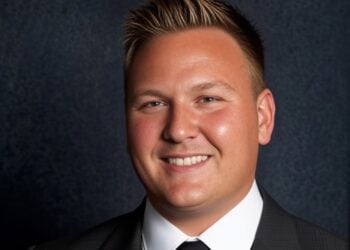After being recruited as a wrestler to The Wharton School at the University of Pennsylvania, Peter Ingersoll wanted to major in real estate. Raised by a family of builders, it seemed a natural choice. At the time, the only available real estate course was in the graduate school finance department.
“I took finance as a major and substituted graduate level courses to major in real estate finance,” Ingersoll said. “It was a challenge being a student athlete, but I am so fortunate to have received an amazing education.”
AALM: How did you develop a niche in cannabis as an investment sector?
PI: In 2005, my wife was diagnosed with post-polio. Because of the pain and weakness this causes, she was confined to a wheelchair for five years. It became so overwhelming, she confessed she wasn’t sure she could endure the pain.
That week, her best friend visited with cannabis brownies. My wife had never tried cannabis and was staunchly opposed. He cut a postage-stamp sized piece and gave it to her. Twenty minutes later, her pain was gone. It was a miracle!
It is not an exaggeration to say cannabis saved my wife’s life.
In 2016, when California legalized cannabis, I wanted the industry to become legitimate. I wanted the damage caused by the War on Drugs to be refuted and replaced with knowledge and curiosity. I saw my role as bringing ethics, professionalism and capital into the cannabis sector. I learned those traditional building blocks are not sufficient to create a new industry out of whole cloth.
AALM: Tell us how you first came to work as an expert witness and about your first case.
PI: Dennis Wickham, a partner at SCMV, asked me to help him with a dispute between a real estate developer and his client—a family office. I had five days to examine the evidence, complete research and render a report, which was pivotal in winning the case. I reverse engineered the developer’s own projections to prove his defense assertions could not be true. Dennis and the client were very happy.
AALM: In the five years you’ve served as an expert witness, are there any cases that have stood out?
PI: Yes, the defendant was a prestigious law firm that simply formed an LLC. Their client went on to lose a small fortune investing with some bad actors in a cannabis business. He lost his fraud litigation against his former partners. With no other remedy in sight, he targeted the client firm’s E&O policy. I was able to prove that the evidence submitted by the plaintiff had been fabricated by the plaintiff’s former partners. The case quickly settled thereafter.
AALM: How does your work in business valuations and brokerage services complement your expert work?
PI: Valuations are at the core of brokerage work and in Lost Profits cases. Valuations are the foundation. The discipline to organize chaotic market data, the attention to detail using methodology to outline a narrative is fundamentally the same.
Often when there are legal disputes there is the divergence between the financial promises made and the financial results and also between the contractual promises the parties made to each other. It is difficult to separate one from the other. The original motivations do not match the current motivations of the parties, yet the economic incentives of each party will shine through during testimony. This subplot, if you will, speaks loudly.
AALM: How would you describe your approach to your work as an expert witness?
PI: I approach each case holistically with a keen interest in the facts, evidence and timeline. There are three primary stages. First, fact gathering, thorough reading, research and reflection. Second, digging into the theory of the case with retaining counsel, understanding the case law supporting their case. To ensure maximum productivity, we review the scope of work in detail before the retainer agreement is signed. And lastly, in phase three, the team prepares to enter the courtroom.
Even as the parties sharpen their legal knives leading up to the trial, each side is learning more of their strengths and weaknesses. Each side is evaluating how much time the legal effort is taking away from running their business and enjoying their life. It is my belief that all parties are best served by exploring the possibility of settlement before the expense of a trial.
Our country has a magnificent system to resolve disputes. It may take a long time, it is expensive, but on the whole it works.
AALM: Looking back over your career, what trends do you believe will continue to appear in litigation moving forward?
PI: I have learned it’s hard to be reasonable, when your house is burning. Declining cannabis prices and collapsing margins combined with highly burdensome regulations and even higher taxes put enormous pressure on the cannabis operators. Many are tempted to bend the rules to survive. Even hard-working entrepreneurs can be tempted to keep the ship afloat by dubious means.
Operators are trying to compete with the black market, which still retains 65% of the market. There are no solutions on the horizon at the state level to curtail the black market. Sadly, many disputes arise that can only be attributed to the secretive nature of running cash businesses and the bad financial habits of legacy operators.
The delay of federal legislation on the legality of cannabis banking is strangling the industry and thwarting full compliance. This leads to legal conflicts between principals trying to salvage their investment.








